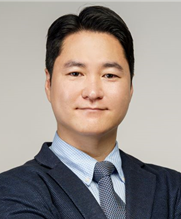
토토사이트 로그인 Roh Tae-woo, School of International Studies, Hanyang University, received the best overseas paper award at the fall conference of the Korean Academy of International Business.
Korean Academy of International Business (President Lee Byung-hee, 토토사이트 로그인 at the School of Business of Hanyang University), a major academic organization led by Korean international business researchers, covers various research topics such as reinforcing companies' global competitive edge, direct overseas investment, and attracting foreign investment. The academy houses over 600 active members, including corporations and institutions, who lead active research.
Professor Roh's paper, MNEs’ capabilities and their sustainable business in emerging markets: Evidence from MNE subsidiaries in China, was published in the Journal of International Management, Volume 30, Issue 1. The study analyzed the impact of multinational corporations' innovation ambidexterity on their sustainable performance by utilizing dynamic capability and ambidexterity theories. The joint study between Professor Park Byung-il, Hankuk University of Foreign Studies, and Professor Shufeng Xiao, Sookmyung Women's University, stressed the dynamic capabilities as an important factor that enables innovation ambidexterity, asserting moderating impacts of local governments' pressures on the association between dynamic capability and innovation ambidexterity.
"Managers of subsidiaries of corporations entering new markets must strengthen innovation capabilities to effectively react to political, social, and environmental barriers of the host country," said Professor Roh Tae-woo. "This plays an important role in adapting to quickly changing competitions and leading locally well-balanced innovation."
In particular, by taking the Indian market as an example, Professor Roh stressed that 토토사이트 로그인ndai Motors is contributing to improving the local environment by providing switchable circular microfilters for air purifiers installed on the Wind Tube of air conditioners. In addition, he explained Toyota's case of developing air purification technology that can purify a dozen kilograms of air each day by charging batteries using energy generated from the chemical reaction between Hydrogen and Oxygen in the hydrogen car. Such ambidexterity innovation shows that multinational corporations are contributing to the environment while meeting local environmental standards by exploiting extant knowledge and exploring innovation.
Professor Roh added that changes in market conditions impact the managers' reformulation efforts of innovation strategies for solving various problems in the local community. He stressed, "Managers of overseas subsidiaries must focus on narrowing the gaps between stakeholder demands and social development by developing balanced innovation capacity in an unstable and dynamic environment.
Meanwhile, Professor Roh Tae-woo was listed in the "Stanford/Elsevier Top 2% Scientists List 2024" co-announced by Elsevier and Stanford University, and was appointed editorial member as the first Korean. Moreover, by running RIIBS LAB (Research in Internationalization, Innovation, Business Strategy and Sustainability) focused on academic research, he has been continuing active research, publishing over 170 papers in renowned journals in and outside of Korea.
관련토토사이트 로그인
- Professor Roh Tae-woo of 토토사이트 로그인 Receives “Maeil Business New Scholar Paper Award” from 27th Korean Academic Society of Business Administration Conference
- Professor 토토사이트 forever Tae-woo at 토토사이트 forever Hosts Emerald Author Focus
- HYU 토토사이트 모멘트 of 토토사이트 모멘트 Administration Achieves AACSB Accreditation for the 4th Consecutive Time <
- 토토사이트 로그인 Professors Identify Paradoxical Relationship Between Political Stability and Economic Growth
